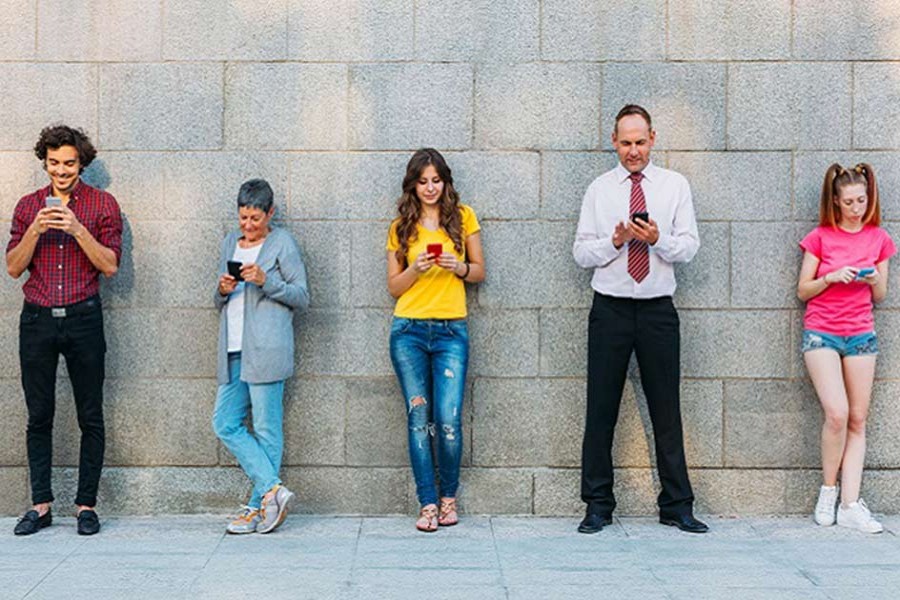In recent times, most young people go to restaurants that they have read about in food-review pages and Facebook groups' posts. Also, some want to go to restaurants where the lighting is enough to take selfies and photos that they will share on Facebook.
The activities of these people at the restaurants would make anyone think that their sole objective for coming to the restaurant was not to have the food there and spend quality time with their loved ones, but to take photos and share them on Facebook and other social media platforms.
Sadly, this is how many social media users are becoming fixated on these platforms and the interactions that happen through them.
But social media was developed to connect people in a way that would foster bonds. With the passage of time, it seems that the platforms are becoming not a site of virtual affinity but causing isolation in reality.
For example, at the moment, Dhaka has 22 million active Facebook users. This is 1.10 percent of the total monthly active users of the social networking site across the globe, according to a study jointly conducted by We Are Social and Hootsuite in 2017.
The same study conducted in 2019 cited that Bangladesh ranked 3rd in terms of 'growing number of Facebook users'. Around 92 million people in Bangladesh have access to internet. From this number, 34 million are social media users. This is almost 20 per cent of the total population in 2019. As such, the number of Facebook users has increased by 7.0 per cent from 13 per cent of the total population who use Facebook as of 2017.
Psychologists have pointed out that social media is causing 'Fear of Missing Out' or FOMO, a phenomenon where social media users are afraid of being excluded from the flashy and trending materials on these platforms. This causes anxiety among them through social media engagements. The more one uses social media, the more likely he/she is likely to be affected by this.
Additionally, seeing how well people are faring in their personal lives through posts shared by them on social media can cause envy among their friends and connections. This can trigger feelings of depression among them.
Colourful filters and lots of editing tools are also becoming popular on social media. Users apply these before posting their photos. These are giving users the feeling that they are not beautiful enough, leading to feelings of self-loathing.
Digital dualism, a dichotomisation of persona, is a belief that online and offline are separate and distinct realms with the latter being real. Digital dualists often label the online self as somehow false, contrived, constructed, or performed, while the in-person self is more spontaneous, real and genuine. As digital dualism is increasing, there is an increasing confusion whether Facebook and other social media users are really their social media self or the person they are in reality. This begs the question: Are we trying to escape from reality through social media?
Social isolation-which researchers defined as a lack of a sense of belonging, true engagement with others and fulfilling relationships- has thus been linked with increasing social media use. Physical presence and engagement are necessary in order to connect emotionally. But social media does not require such encounters.
More importantly, most users on social media are engaged in self-presentation or positioning themselves the way they want to be seen. The feeling we get from self-presentation has become so strong that if a person views his or her own Facebook profile, it can increase his or her self-esteem.
Masud Rana is a development communication professional working with an NGO in Kabul, Afghanistan


